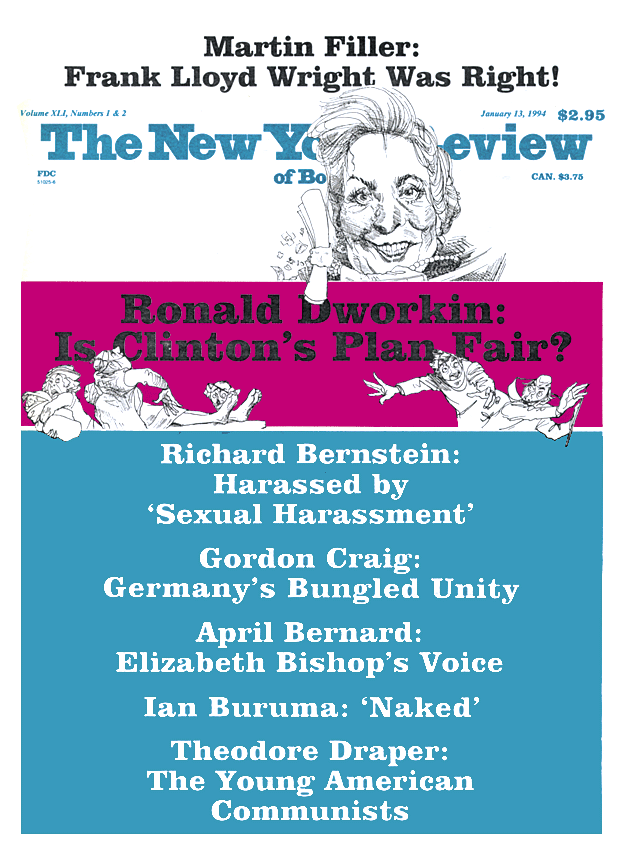In response to:
The Furtwängler Enigma from the October 7, 1993 issue
To the Editors:
Robert Craft’s latest attempt to chip away at the reputation of Arturo Toscanini, when reviewing two books on Wilhelm Furtwängler’s ambiguous relationship with Nazi Germany [NYR, October 7, 1993], impels me to write—not to defend Toscanini, who needs no defense, but to inform those readers who prefer facts to fantasies. In passing, Craft mentions that no less than Arnold Schoenberg “blamed the American ban against [Furtwängler] on ‘the intrigue of one man’ (i.e., Toscanini…).”
If Craft had wanted to cite a reliable source, he should have turned to Harvey Sachs’s Toscanini (Lippincott, 1978). On page 244 Sachs reports that Toscanini urged the board of the New York Philharmonic to choose Furtwängler as his successor in 1936. On page 299 Sachs dismisses undocumented talk about Toscanini postwar “intrigue” by pointing out that he never prevented Furtwängler from conducting at La Scala, where the board would have leaped to do his bidding.
Since neither Craft nor Schoenberg mentioned it, let me add that Furtwängler stood no chance at conducting over here after the war, once almost every major Jewish musician (Yehudi Menuhin was a notable exception) threatened not to perform with any American orchestra that engaged him.
Harris Green
New York City
Robert Craft replies:
Mr. Green’s digression neglects to explain why his source is more reliable than the sources in the far more thoroughly and recently documented books I reviewed.
This Issue
January 13, 1994


